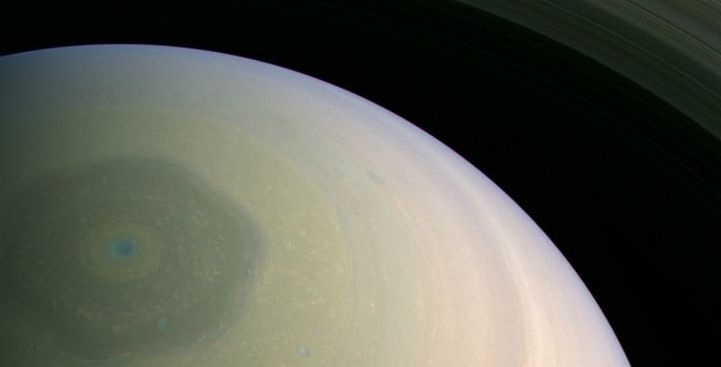
Gas giants are large planets of relatively low density which predominantly consist of hydrogen and helium. In our own solar system, there are several gas giants such as Jupiter, Saturn, and Neptune. Gas giants are considered unsuitable for human life, but some scientists theorize that other forms of exotic gas-based life may exist.
2 years ago a group of researchers surveyed science-illiterate people across the country about the possibility of life on gas giants, and an interesting question came up over and over again - If these planets are made of gas, how come they don't catch fire?
This led our researchers to try to answer the question - Can a gas giant ignite?
The answer, according to some scientists, is yes. Researchers at the School of American Space Science have concluded that if a shielded rocket carrying a payload of 20 tons of TNT can reach the core of Saturn, it may be possible to blow it up. In fact, they already built the rocket and set the coordinates.
The tricky part of is launching all that TNT without detonating it here on earth. The head of the Combustible Space Rocket Agency is seeking out possible take-off sites that can withstand a series of accidental explosions. Possible sites include deserted or low income housing land in New Mexico, Ohio, and Florida.
Once a site is chosen, plans for a launch will move forward hopefully by next summer.
The head of the CSRA thinks this experimental explosion will be great for science as it will "gather worldwide attention and generate a curiosity among young people for science and explosions".
Still, some space agencies such as NASA and the ESA remain skeptical of the mission. The ESA has said that this mission "will not and cannot proceed as there is literally no scientific value in blowing up a planet". The Space Policy Institute has made claims as to the illegality of blowing up a planet. NASA has declined to comment, but it's clear that the debate is not over.
When asked to respond to critics of the mission to blow up Saturn, the head of the CSRA said "Technically no one owns Saturn. Aside from the scientific data this mission is expected to collect, hundreds of new American jobs will be created. If my company wants to privately fund a mission using zero tax dollars unlike NASA, neither the government nor any other agency should get in the way."
2 years ago a group of researchers surveyed science-illiterate people across the country about the possibility of life on gas giants, and an interesting question came up over and over again - If these planets are made of gas, how come they don't catch fire?
This led our researchers to try to answer the question - Can a gas giant ignite?
The answer, according to some scientists, is yes. Researchers at the School of American Space Science have concluded that if a shielded rocket carrying a payload of 20 tons of TNT can reach the core of Saturn, it may be possible to blow it up. In fact, they already built the rocket and set the coordinates.
The tricky part of is launching all that TNT without detonating it here on earth. The head of the Combustible Space Rocket Agency is seeking out possible take-off sites that can withstand a series of accidental explosions. Possible sites include deserted or low income housing land in New Mexico, Ohio, and Florida.
Once a site is chosen, plans for a launch will move forward hopefully by next summer.
The head of the CSRA thinks this experimental explosion will be great for science as it will "gather worldwide attention and generate a curiosity among young people for science and explosions".
Still, some space agencies such as NASA and the ESA remain skeptical of the mission. The ESA has said that this mission "will not and cannot proceed as there is literally no scientific value in blowing up a planet". The Space Policy Institute has made claims as to the illegality of blowing up a planet. NASA has declined to comment, but it's clear that the debate is not over.
When asked to respond to critics of the mission to blow up Saturn, the head of the CSRA said "Technically no one owns Saturn. Aside from the scientific data this mission is expected to collect, hundreds of new American jobs will be created. If my company wants to privately fund a mission using zero tax dollars unlike NASA, neither the government nor any other agency should get in the way."

 RSS Feed
RSS Feed